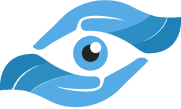To ensure that the whole world is open to your child later, unrestricted vision is an important factor. How else is it supposed to find its way without help in our highly visual environment? Therefore, checking the eyes should be an important part of your child’s health care. What many parents don’t know: Eye and vision defects can develop in early childhood, perhaps even unnoticed at first.
With a vision test for children and a comprehensive screening examination, these can be detected early and treated properly, ensuring continued good visual development. So taking early action can make all the difference in your child’s future. We recommend that you have your child undergo an eye test at the Bellevue Eye Clinic in Zurich before he or she starts school at the latest, but preferably much earlier.



